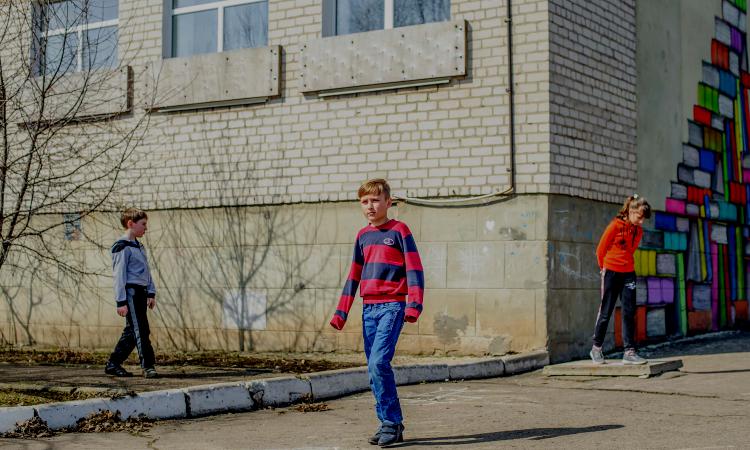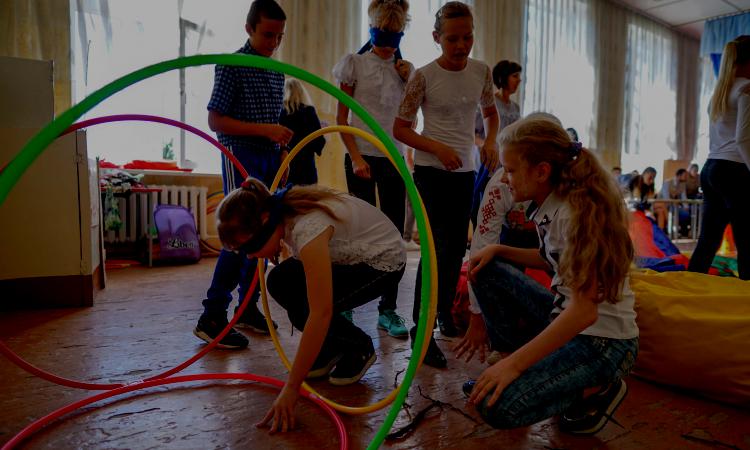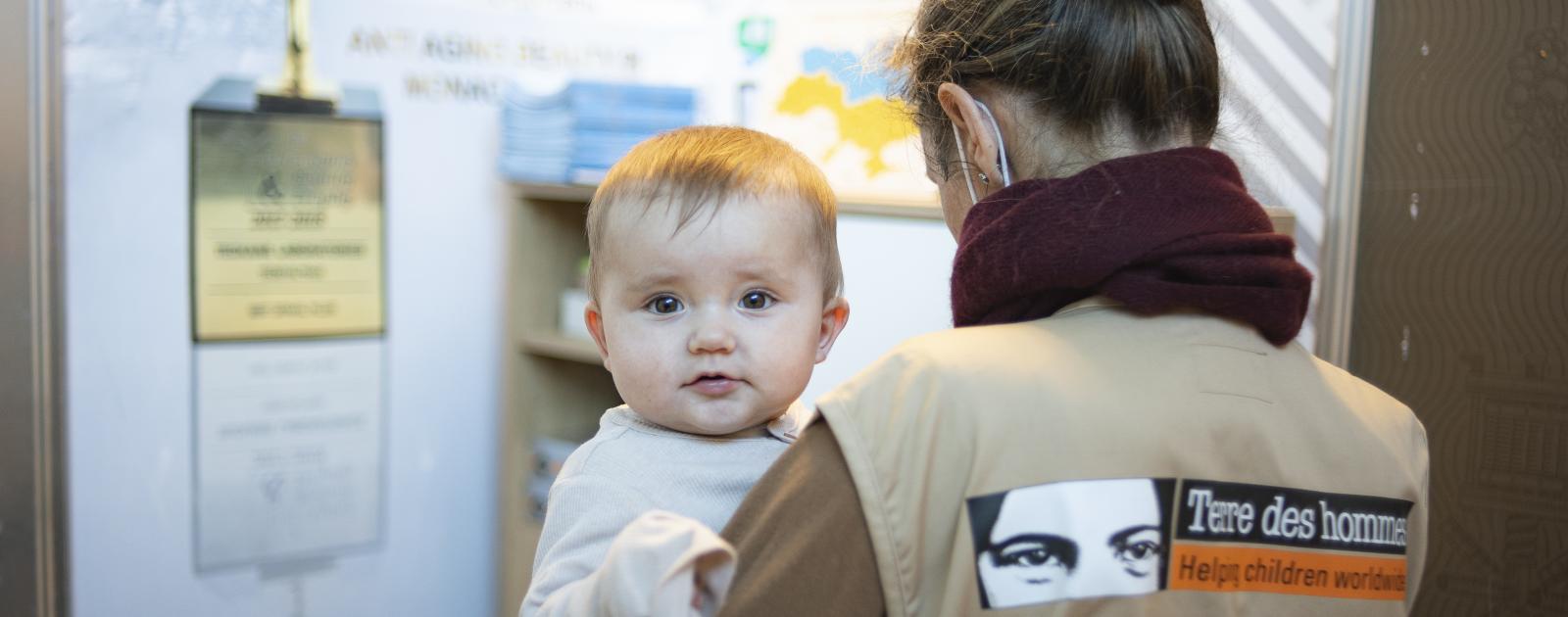
Since the beginning of the war in Ukraine, Moldova and Romania have been facing an unprecedented influx of displaced people, mostly women and children. Terre des hommes and its partners have been active in these countries for a long time and have set up children's spaces and baby corners in key locations.
For several weeks, Tatiana and her husband Artur clung to the hope that the war started by Russia on 24 February 2022 would not last and that everything would eventually return to normal. But on 13 March, the deluge of fire intensified on Mykolaïv, the southern Ukrainian port city where the couple live with their five children aged between one and ten, Milana, Versavia, Luiza, Yasmin and Rustam, the eldest. "We had no cellar, no place to protect us from the bombs. Just our big padded sofa, which we pushed into a corner with blankets and cushions to hide the children," Tatiana recalls. That day, the family decided to evacuate the city.
24-hour information
Tatiana, Artur and their children are housed at MoldExpo, the Moldovan capital's large exhibition centre, which the authorities have hastily converted into a reception centre after housing people there during the Covid-19 epidemic. In this high-ceilinged hall bathed in blue light, thin partitions separate the families' 'rooms'. The vinyl curtain that serves as a door is not enough to keep them from the constant hubbub. Showers and toilets are shared. But at least the families have a place to sleep, meals, and interlocutors to provide them, 24 hours a day, with the information they need about their rights, travel routes, security.
It is in this nerve centre, with a capacity of 600 people, that Tdh runs a "Blue dot" space, opened through the partnership with Unicef Moldova. The space has been designed to anchor the children in a new routine through games and activities, whether physical, creative or educational. The aim is to get them back to normality as quickly as possible, to relieve the stress caused by the war. "I really like it here," says three-year-old Versavia, the second-to-last daughter of Tatiana and Artur. "I play every day with new friends in the children's room. The facilitators play with us all the time.
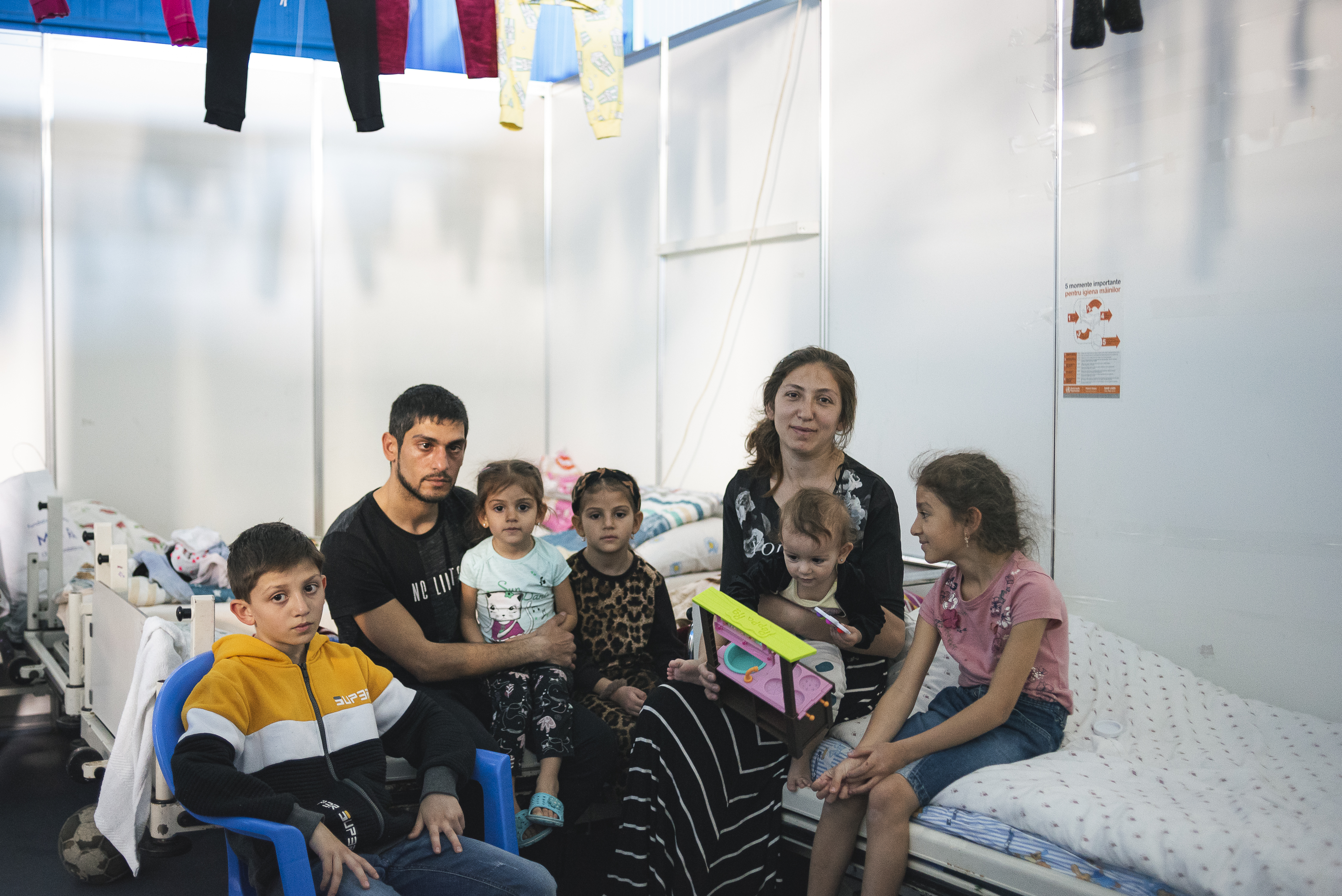
On the ground from the start of the war
The Tdh team was at work from the moment the first Ukrainian families arrived in Moldova. "At Tdh, on the first day of the war, we were all overwhelmed by our personal reactions. From the second day onwards, we started to think in a professional perspective", says Elena Madan, Tdh country manager in Moldova. Unicef quickly approached Tdh. The two organisations have long-standing ties of partnership and trust. "It was mainly children and their mothers who were on the run", stresses the Tdh manager. "Children are the most vulnerable group in the refugee community, as they are the most exposed to risks such as trafficking or exploitation. They need to be specifically protected.
Just talking
In addition to the children's room, the "Blue dot" space includes a room dedicated to psychological consultations coordinated by Tdh as well as a baby corner. "I come here almost every day with my six-month-old daughter to get porridge, games, dummies, wipes or nappies. Or just to talk. It's a must. It's also important to know that there is always someone who can look after my baby. It even gives me time to take a shower in peace," says Katya, a 19-year-old mother who also came from Mykolaïv. Any plans for the future? "Let's wait until the war is over. Everything else is secondary," replies the young woman.
Reconciling the needs of children and parents
The Tdh space occupies a limited area in the large waiting room of the station in Bucharest, the capital of Romania. In the adult section, a few beds and chairs have been set up to allow those who wish to doze off or watch TV. The place is immersed in a gloomy calm, which contrasts with the shouts and laughter coming from the playground, where the children draw, kick the ball around and play games proposed by the animators. After hours of travelling by train or car, often interspersed with long waiting periods, the children have energy and stress to release. Their parents, on the other hand, need to relax and focus on what's next. The children's area has been designed precisely to balance these needs.
The children first enter the room intimidated. Then they take over the play area to the point of not wanting to leave. "I've noticed that children have a need to talk," says Cristina. "A two-year-old grabbed me and sat me down. He was trying to explain something to me, hugging me. He seemed happy to be listened to. Other children wanted to share their experiences. A nine-year-old girl told me that a bomb had exploded near her, and that shrapnel had hit her face and eyes. Many want to tell stories, but they have no one to listen.
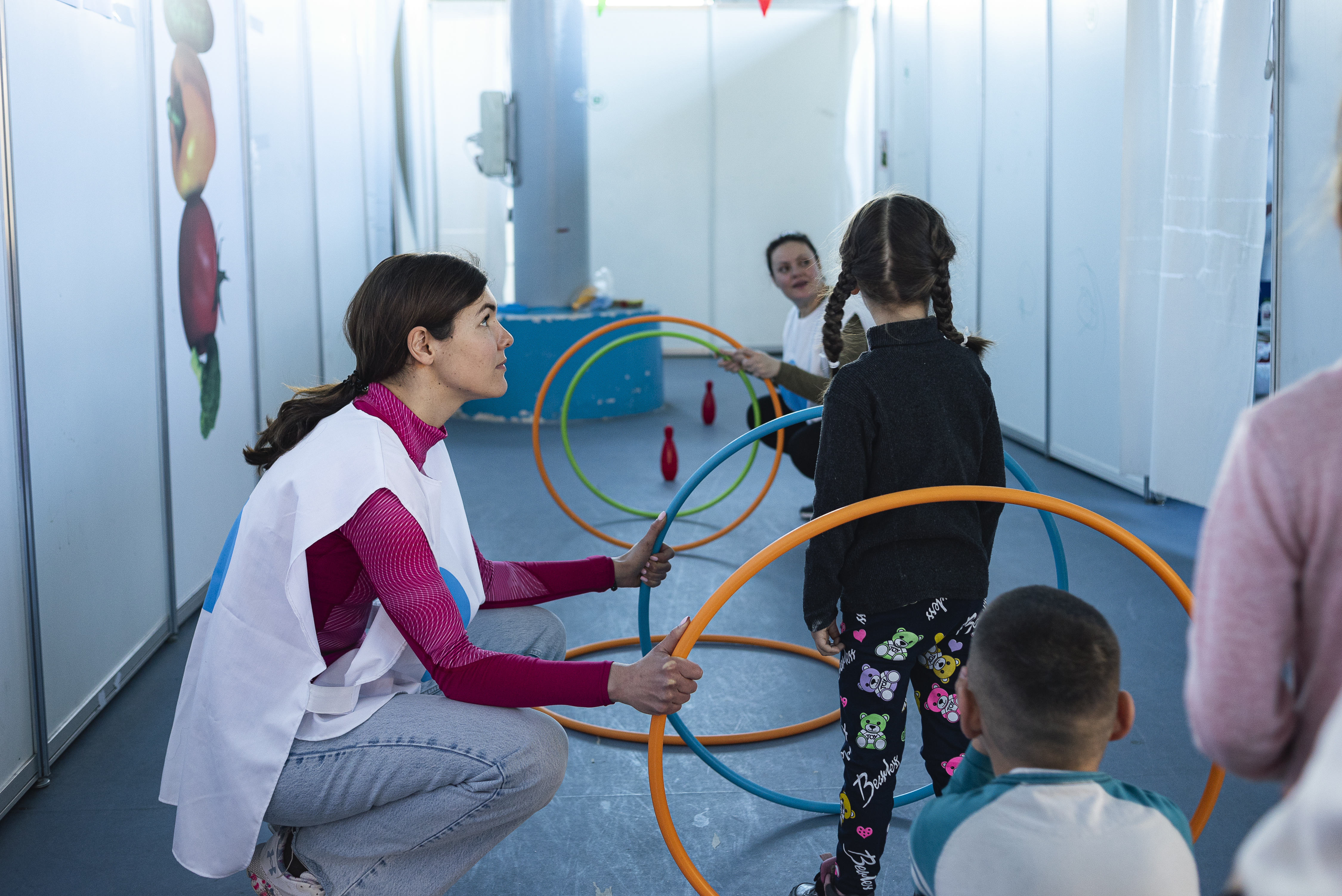
"What do you need?"
Ukrainians who arrive at Bucharest Central Station spend an average of only eight hours there, and most will never return. Not far from the station, Tdh has opened another centre for families who plan to stay longer in the Romanian capital. "We try to get to know these families, to develop a relationship of trust with them," explains Cristina. "We don't want to impose ourselves by telling them what they need. On the contrary, we ask them to tell us what they are missing. Faces often light up when they hear this, because it's a question no one asks. Everyone tends to give without asking. Many Ukrainian women have been affected by the bombings and suffer from having left their husbands, sons, or brothers behind. They courageously express a need for psychological support, which Tdh can provide.
Photo credit: ©Tdh/Ramin Mazur
